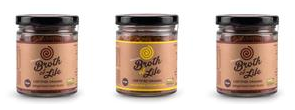
It has been a common misconception for years, by the public, the media and the medical world alike, that to stay healthy all fat should be avoided at all costs. We now know this not true. We are now more informed and have begun to understand that some fats are actually very good fats.
Removing bad fats from our diet is still a common recommendation, but as it happens, if you remove the good fats too, you are doing your body more harm than good. Like so many things in life, it all comes down to balance.
What are Bad Fats?
Bad fats are the obvious ones - Trans fats to be precise. Trans fats or trans-unsaturated fatty acids are a result of a process called hydrogenation, which is when healthy oils are turned into solids to give them a longer shelf life. Trans fats were commonly found in foods such as margarine early in the last century and progressively became more popular until their unhealthy nature was revealed in more recent times. Other foods that might contain trans fats are doughnuts, cookies, crackers, muffins, pies and cakes. These days though, consumers are too smart, so the existence of trans fats is waning.
What are Good Fats?
There are 2 types of good fats, monounsaturated fats and polyunsaturated fats. Monounsaturated fats include plant-based liquid oils like olive oil, peanut oil, safflower oil and sesame oil. Polyunsaturated fats are in foods such as vegetable oils. They are also found in fatty fish such as salmon and mackerel, in nuts and in seeds.
The Middle Ground
In between bad fats and good fats are saturated fats – or what I like to call the ‘sit-on-the-fence-fats’. While these are not recommended for high intake as they are often the foods known to cause high cholesterol, heart disease and cardio vascular disease, they are foods that most of the population consume fairly regularly, things like whole milk, cheeses, fatty beef (Hmmm… I’ll get to that later), lamb, pork, chicken with skin, cream, butter and cheese. As long as they are consumed in moderation, they can actually be very beneficial, but too much of a good thing can easily become a negative, so again, balance is key.
A study conducted in the U.S.[1] raised the question of whether dietary saturated fat is actually associated with heart disease and cardio vascular disease at all, as no significant evidence was discovered concluding that the two were linked. Another study found that monounsaturated fats and polyunsaturated fats may well not be the angelic foods they are perceived to be. The study published by Newbold HL [2] queried whether, “elevated serum cholesterol levels (are) caused in part not by eating animal fat… but by some factor in grains, sucrose, or milk that interferes with cholesterol metabolism.”
The conclusion from these studies and new information seems to be to avoid elevated cholesterol levels, everything should be consumed in moderation. They conclude that saturated fats are not the enemy and that seed and vegetable oils, grains and a large number of other foods can also contribute to elevated cholesterol levels and other health issues such as obesity, diabetes and heart disease.
While saturated fats are generally considered to be the cholesterol boosters within the food pyramid, it should also be mentioned that saturated fats from clean, healthy, humanely treated animals are much better for us [3] than saturated animal fats from other sources. Poorly fed and cared for cattle, for example, have toxins from their poor diets stored in their fat. If we then consume that fat, then you guessed it… We are filling our bodies with toxins.
An amazing source of nutrients; of clean, organic saturated beef fat is our very own Brellow. Brellow consists of the gorgeous fat that naturally rises to the surface when a beef bone broth is bubbling away. Rather than being thrown away, this nutritionally rich, fatty goodness can be kept, rendered and used as a cooking fat in place of oils or butters, which do not contain the nutrients or minerals that brellow can offer. While it sits in the ‘middle ground’ of saturated fats, it’s place on that list is questionable as if it’s used right, it’s nutritional and healing benefits are abundant.
References:
[1] Meta-analysis of prospective cohort studies evaluating the association of saturated fat with cardiovascular disease.
Am J Clin Nutr. 2010 Mar;91(3):535-46. doi: 10.3945/ajcn.2009.27725. Epub 2010 Jan 13.
www.ncbi.nlm.nih.gov/pubmed/20071648
[2] Reducing the serum cholesterol level with a diet high in animal fat.
South Med J. 1988 Jan;81(1):61-3.
www.ncbi.nlm.nih.gov/pubmed/3336803
[3] Should I drink bone broth - What about my cholesterol
www.brothoflife.com.au/blogs/blog/should-i-drink-bone-broth-what-about-my-cholesterol
BUY BONE BROTH



















